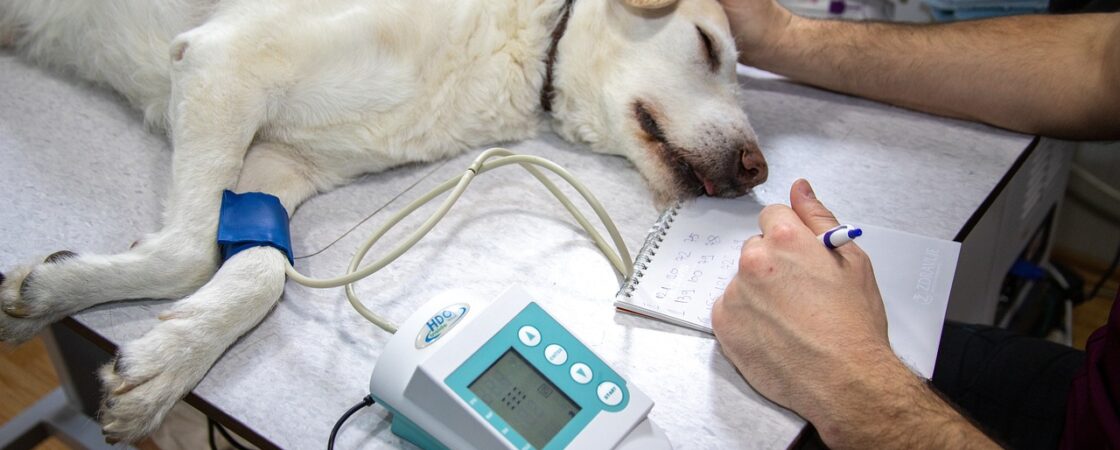As a foreign veterinarian, you may be considering the opportunities that await in Canada’s thriving animal healthcare industry. With its high standards of veterinary care and growing demand for skilled professionals, Canada offers an attractive destination for your career.
Whether you’re a recent graduate or an experienced practitioner, you’ll find a range of veterinary jobs across the country’s diverse landscapes. From bustling urban clinics to rural practices serving farming communities, Canada’s veterinary field presents exciting prospects for foreign talent.
In this article, you’ll discover the current job market, licensing requirements, and steps to kickstart your veterinary career in Canada.
Veterinary Job Opportunities in Canada
Growing Demand for Veterinary Professionals
Canada’s veterinary industry is experiencing a surge in demand for qualified professionals. As pet ownership continues to rise and the livestock sector expands, opportunities for veterinarians are abundant across the country. From bustling urban clinics to rural practices, the need for skilled veterinary practitioners is evident in various settings.
Types of Veterinary Positions Available
The Canadian veterinary job market offers diverse roles to suit different specializations and interests. Some of the most sought-after positions include:
- Small animal veterinarians
- Large animal practitioners
- Emergency and critical care specialists
- Veterinary surgeons
- Public health veterinarians
- Research and academia positions
These roles span private practices, government agencies, research institutions, and animal welfare organizations, providing a wide array of career paths for foreign veterinarians.
Geographical Distribution of Opportunities
While veterinary jobs are available throughout Canada, certain regions present particularly promising prospects. Rural areas and smaller communities often face shortages of veterinary professionals, offering attractive opportunities for those willing to relocate.
Meanwhile, major urban centers like Toronto, Vancouver, and Montreal boast a high concentration of veterinary clinics and specialty hospitals, catering to diverse animal healthcare needs.
Salary and Benefits
Canadian veterinary positions typically offer competitive salaries and comprehensive benefits packages. Earnings can vary based on factors such as location, experience, and specialization. Many employers provide additional perks such as continuing education allowances, professional development opportunities, and work-life balance initiatives, making Canada an appealing destination for foreign veterinarians seeking rewarding career prospects.
Requirements to Work as a Veterinarian in Canada
Educational Qualifications
To practice veterinary medicine in Canada as a foreign-trained professional, you’ll need to meet specific educational requirements. You must possess a Doctor of Veterinary Medicine (DVM) degree or its equivalent from an accredited institution.
The Canadian Veterinary Medical Association (CVMA) recognizes degrees from schools accredited by the American Veterinary Medical Association (AVMA) or the Royal College of Veterinary Surgeons (RCVS).
Licensing and Certification
Obtaining the proper licensing is crucial for practicing veterinary medicine in Canada. You’ll need to pass the North American Veterinary Licensing Examination (NAVLE), which assesses your knowledge and skills in veterinary medicine. Additionally, each province has its own regulatory body, so you’ll need to meet the specific requirements of the province where you intend to work.
Language Proficiency
As Canada is a bilingual country, demonstrating proficiency in either English or French is essential. You’ll likely need to take a language test such as the International English Language Testing System (IELTS) or the Test d’évaluation de français (TEF) to prove your language skills. The required scores may vary depending on the province and the regulatory body.
Work Experience and References
While not always mandatory, having relevant work experience can significantly boost your chances of securing a veterinary position in Canada. Many employers prefer candidates with practical experience in animal care and treatment. Be prepared to provide professional references who can vouch for your skills and work ethic.
Immigration Requirements
Lastly, ensure you meet Canada’s immigration requirements. You may need to apply for a work permit or permanent residency, depending on your circumstances. The Express Entry system or provincial nominee programs could be potential pathways for skilled veterinarians looking to immigrate to Canada.
How to Get Licensed as a Veterinarian in Canada
Understanding the Licensing Process
Obtaining a veterinary license in Canada as a foreign-trained professional involves a multi-step process. The National Examining Board (NEB) of the Canadian Veterinary Medical Association (CVMA) oversees this procedure. To begin, you’ll need to have your veterinary degree verified and assessed for equivalency to Canadian standards.
Meeting Educational Requirements
Your veterinary education must be from an accredited institution recognized by the CVMA. If your degree is from a non-accredited school, you may need to complete additional coursework or training to meet Canadian standards. This might include participating in a clinical proficiency assessment or completing a bridging program.
Passing the Required Examinations
The next crucial step is successfully passing the North American Veterinary Licensing Examination (NAVLE). This comprehensive test evaluates your knowledge and skills in veterinary medicine. Additionally, you’ll need to take the National Board Exam (NBE) and the Clinical Proficiency Examination (CPE) administered by the NEB.
Fulfilling Language Proficiency Requirements
Demonstrating proficiency in either English or French is essential. You’ll need to take a recognized language test such as IELTS or TOEFL and meet the minimum score requirements set by the provincial veterinary regulatory body where you intend to practice.
Completing Provincial Registration
After meeting all national requirements, you must register with the veterinary regulatory body in the province where you plan to work. Each province may have additional requirements, such as jurisprudence exams or specific documentation. It’s crucial to research and comply with the specific regulations of your chosen province.
Maintaining Your License
Once licensed, ongoing professional development is typically required to maintain your credentials. This ensures you stay current with advancements in veterinary medicine and continue to provide high-quality care throughout your career in Canada.
Finding Veterinary Jobs as a Foreign Veterinarian
Research Canadian Veterinary Requirements
As a foreign veterinarian seeking employment in Canada, your first step is to thoroughly research the country’s veterinary requirements. The Canadian Veterinary Medical Association (CVMA) sets the standards for veterinary practice in Canada. You’ll need to ensure your qualifications meet their criteria, which may include completing additional coursework or examinations.
Obtain Necessary Certifications
To practice veterinary medicine in Canada, you must obtain certification from the National Examining Board (NEB) of the CVMA. This process typically involves passing the North American Veterinary Licensing Examination (NAVLE) and completing a Clinical Proficiency Examination (CPE). These certifications demonstrate your competency and readiness to practice in the Canadian veterinary field.
Network and Build Connections
Networking is crucial when seeking veterinary jobs in Canada. Join professional organizations like the CVMA and attend industry conferences. Connect with other veterinarians and clinic owners through social media platforms such as LinkedIn. Building relationships within the Canadian veterinary community can lead to job opportunities and valuable insights into the local job market.
Tailor Your Application Materials
When applying for veterinary positions, customize your resume and cover letter to highlight your unique skills and experiences. Emphasize any specialized training or expertise that sets you apart from other candidates. Be sure to address how your international experience can benefit potential employers and contribute to the diversity of their practice.
Consider Alternative Pathways
If you’re facing challenges in securing a traditional veterinary role, consider alternative pathways to gain Canadian experience. Look into internships, volunteer opportunities, or positions as a veterinary technician or assistant. These roles can help you familiarize yourself with Canadian veterinary practices and potentially lead to full-time veterinary positions in the future.
Top Provinces for Veterinary Jobs in Canada
Canada offers numerous opportunities for foreign veterinarians seeking employment. While veterinary jobs are available across the country, certain provinces stand out as particularly promising for international professionals. Here’s a look at the top provinces for veterinary jobs in Canada:
Ontario
Ontario, Canada’s most populous province, boasts a thriving veterinary industry. With its diverse urban and rural landscapes, you’ll find a wide range of veterinary opportunities here. Toronto, the province’s capital, is a hub for specialized veterinary clinics and research facilities. Rural areas offer ample opportunities for large animal practitioners.
Alberta
Known for its robust agriculture and livestock industry, Alberta is an excellent choice for veterinarians specializing in farm animals. The province’s oil and gas sector also creates unique opportunities for veterinarians involved in environmental impact assessments and wildlife management.
British Columbia
British Columbia’s mild climate and diverse ecosystems make it an attractive destination for veterinarians interested in both domestic and exotic animal care. The province’s coastal areas offer opportunities in marine animal medicine, while its interior regions provide openings in livestock and wildlife veterinary services.
Quebec
As Canada’s French-speaking province, Quebec offers a unique cultural experience for foreign veterinarians. The province has a strong dairy industry, creating demand for large animal practitioners. Montreal, Quebec’s largest city, also provides numerous opportunities in small animal practice and veterinary research.
Saskatchewan
Saskatchewan’s agriculture-based economy creates a high demand for veterinarians specializing in livestock care. The province offers competitive salaries and a lower cost of living compared to more urbanized regions, making it an attractive option for those seeking a balance between professional opportunities and quality of life.
Salary and Benefits for Veterinarians in Canada
Competitive Compensation
As a foreign veterinarian considering a career in Canada, you’ll be pleased to know that the profession offers attractive remuneration. On average, veterinarians in Canada earn between CAD 80,000 to CAD 150,000 annually, depending on factors such as experience, location, and specialization. Urban centers like Toronto and Vancouver typically offer higher salaries to offset the increased cost of living.
Comprehensive Benefits Package
Beyond the base salary, many veterinary practices in Canada provide robust benefits packages. These often include health and dental insurance, paid vacation time, and professional development opportunities. Some employers also offer performance bonuses, profit-sharing plans, or retirement savings contributions, enhancing your overall compensation.
Work-Life Balance
Canadian employers increasingly recognize the importance of work-life balance. Many veterinary clinics offer flexible scheduling options, including part-time positions or compressed work weeks. This flexibility allows you to maintain a healthy equilibrium between your professional and personal life, contributing to job satisfaction and overall well-being.
Career Advancement Opportunities
The Canadian veterinary field provides ample room for growth and specialization. As you gain experience and expertise, you may have opportunities to advance to senior positions, such as lead veterinarian or practice manager. Additionally, pursuing further education or certifications in specialized areas like surgery, dermatology, or emergency medicine can lead to increased earning potential and career satisfaction.
Tips for Applying to Canadian Veterinary Jobs
Prepare Your Credentials
Before applying for veterinary positions in Canada, ensure your qualifications are recognized. Contact the Canadian Veterinary Medical Association (CVMA) to verify your degree’s equivalency. You may need to complete additional coursework or examinations to meet Canadian standards. Obtain necessary certifications, such as the North American Veterinary Licensing Examination (NAVLE), which is often required for practice in Canada.
Tailor Your Application
Customize your resume and cover letter for each position, highlighting relevant experience and skills that match the job description. Emphasize any specialized training or unique experiences that set you apart. Include any volunteer work or internships in animal care to demonstrate your commitment to the field.
Network and Research
Join professional veterinary associations and attend industry events to expand your network. Connect with Canadian veterinarians on LinkedIn or through online forums. Research potential employers thoroughly, understanding their specialties and company culture. This knowledge will help you craft more targeted applications and prepare for interviews.
Improve Your Language Skills
While English is widely spoken in Canada, proficiency in French can be a significant advantage, especially in Quebec and other bilingual regions. Consider taking language courses to enhance your communication skills, which are crucial in veterinary practice.
Understand Canadian Work Culture
Familiarize yourself with Canadian workplace norms and expectations. Emphasize teamwork, adaptability, and cultural sensitivity in your application materials. Be prepared to discuss how you can contribute to a diverse and inclusive work environment, as many Canadian employers value these qualities highly.
By following these tips, you’ll be better positioned to secure a veterinary job in Canada as a foreign applicant. Remember to stay persistent and patient throughout the process, as finding the right opportunity may take time.
Relocating to Canada for a Veterinary Career
Understanding the Process
Relocating to Canada for a veterinary career can be an exciting yet challenging endeavor. As a foreign-trained veterinarian, you’ll need to navigate a series of steps to practice in Canada. The process involves credential recognition, licensing, and often additional training or examinations. It’s crucial to research the specific requirements for the province where you intend to work, as regulations can vary across Canada.
Credential Assessment and Licensing
Your first step will be to have your veterinary degree and qualifications assessed by the Canadian Veterinary Medical Association (CVMA). This evaluation determines if your education is substantially equivalent to that of Canadian-trained veterinarians. Following this, you’ll need to obtain a license from the veterinary regulatory body in your chosen province. This typically involves passing the North American Veterinary Licensing Examination (NAVLE) and meeting language proficiency requirements in English or French.
Cultural Adaptation and Professional Integration
Moving to Canada also means adapting to a new cultural and professional environment. Familiarize yourself with Canadian veterinary practices, animal welfare laws, and client communication norms. Networking with local veterinary associations and attending professional development events can help you integrate into the Canadian veterinary community. Additionally, consider seeking mentorship opportunities to gain insights into the local veterinary landscape and job market.
Immigration Considerations
Securing the right to work in Canada is a critical aspect of your relocation. Explore various immigration pathways, such as the Express Entry system or provincial nominee programs, which may offer opportunities for skilled veterinarians. Some provinces may have specific streams for veterinary professionals. Consult with an immigration expert or use the Government of Canada’s official resources to determine the best route for your situation.
FAQs: Veterinary Jobs in Canada for Foreigners
What qualifications do I need to work as a veterinarian in Canada?
To practice veterinary medicine in Canada as a foreign-trained professional, you’ll need to meet specific requirements. These typically include:
- A degree in veterinary medicine from an accredited institution
- Passing the North American Veterinary Licensing Examination (NAVLE)
- Obtaining provincial licensure from the regulatory body in the province where you intend to work
- Demonstrating proficiency in English or French, depending on the province
It’s important to note that the process can be lengthy and may require additional training or examinations.
How can I find veterinary job opportunities in Canada?
There are several ways to search for veterinary positions in Canada:
- Online job boards specific to veterinary medicine
- Professional associations like the Canadian Veterinary Medical Association
- Provincial veterinary regulatory bodies’ websites
- Networking through veterinary conferences or online forums
- Directly contacting veterinary clinics or hospitals in your desired location
Remember to tailor your resume and cover letter to Canadian standards and highlight any unique skills or experiences you bring as an international candidate.
What is the salary range for veterinarians in Canada?
Veterinary salaries in Canada can vary widely based on factors such as location, experience, and specialization. Generally, you can expect:
- Entry-level positions: CAD $70,000 – $90,000 per year
- Experienced veterinarians: CAD $90,000 – $120,000+ per year
- Specialists or practice owners: CAD $120,000 – $200,000+ per year
Keep in mind that rural areas may offer higher salaries to attract veterinarians, while urban areas might have more competitive job markets.
Conclusion
As you consider pursuing veterinary jobs in Canada as a foreign-trained professional, remember that thorough preparation and persistence are key. While the process may seem daunting, the rewards of practicing veterinary medicine in Canada’s diverse and welcoming communities can be immense.
Take the time to research licensing requirements, improve your language skills, and network with Canadian veterinary professionals. With dedication and the right approach, you can navigate the challenges and build a fulfilling career caring for animals in this beautiful country.
Embrace the opportunity to contribute your unique skills and perspective to Canada’s veterinary field, and embark on an exciting new chapter in your professional journey.
Originally posted 2024-08-22 22:27:49.



